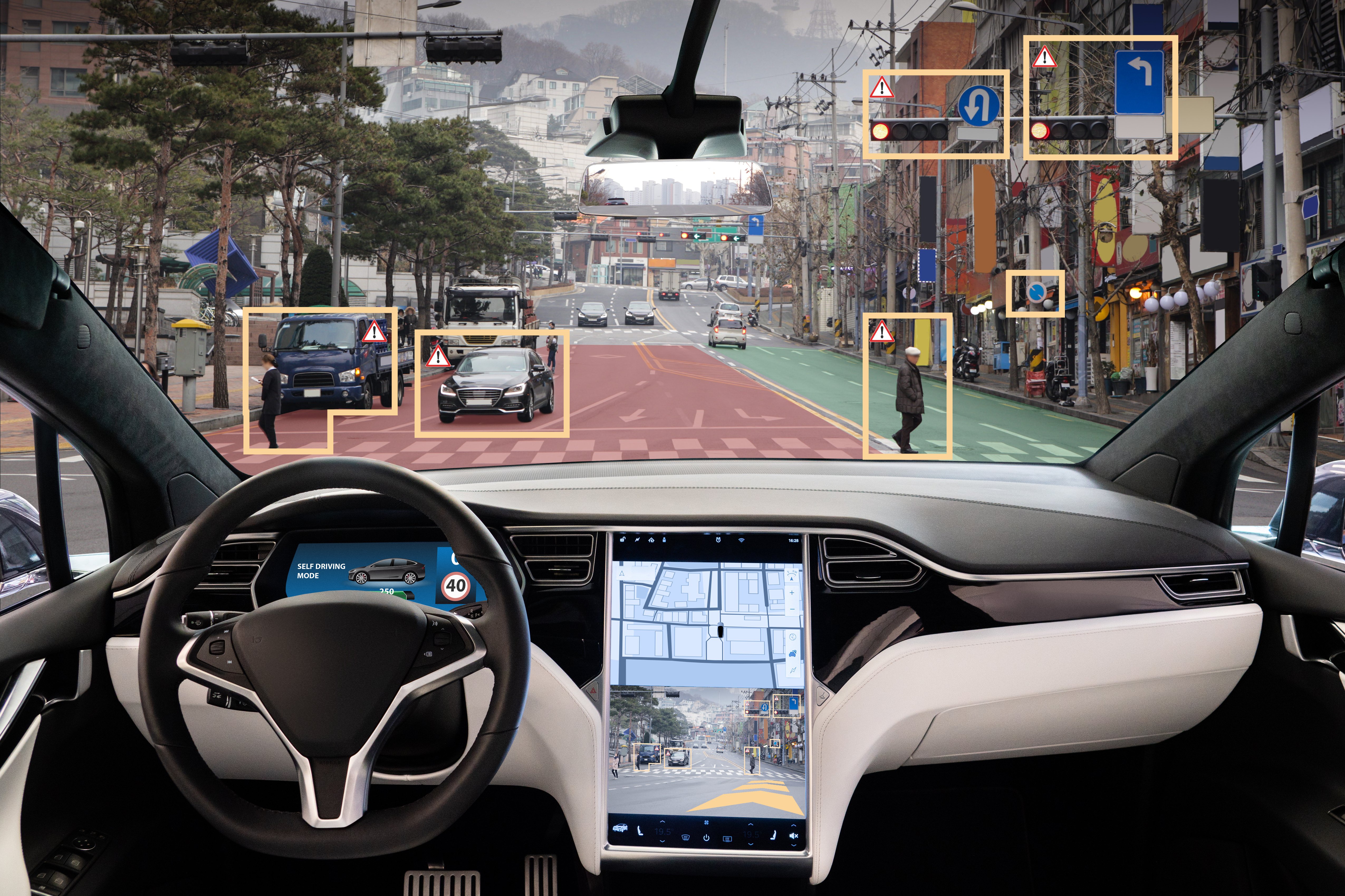AI and the Automotive Industry: A Glimpse into the Future
 By
Oxlo
·
3 minute read
By
Oxlo
·
3 minute read
Artificial Intelligence (AI) has become a cornerstone in various industries, and its impact is particularly pronounced in the automotive sector. Forecasts indicate that AI's penetration into the automotive sector is set to soar, projected to grow from $2.6 Billion in 2022 to $9.6 Billion by 2030, according to Market Research Future. The world is witnessing a sustained surge in demand for connected vehicles and intelligent technologies like voice and image recognition. This trend underscores an industry poised to rely increasingly on AI and automation across automotive design, production, and utilization.
Before delving into the future of AI in the automotive industry, it is important to understand some key trends in the sector today. In a recent interview, Wharton professor John Paul MacDuffie mentioned the CASE technologies: C for Connected; A for Autonomous; S for Shared mobility business models; and E for Electric. He emphasized the significance of comprehending each of these technologies and their implications, as well as how they combine. He noted that while most autonomous vehicles are likely to be electric, not all electric vehicles will be fully autonomous.
Enterprises in the automotive and mobility sectors adopting the CASE framework often encounter challenges encompassing cost, accessibility, safety, and environmental concerns. Due to economic constraints, achieving a harmonious integration of connectivity, autonomy, electrification, and sharing remains a hurdle. However, leveraging the CASE framework serves as a foundational step toward devising more feasible and accessible technological solutions.
Beyond Self-Driving Cars
While self-driving cars often steal the spotlight when discussing AI in the automotive industry, the technology's applications extend far beyond mere autonomy. AI and automation are integral to automotive design and manufacturing processes, including the intricate assembly of vehicle components. Smart robots and automation play pivotal roles in streamlining manufacturing operations.
Moreover, AI has become indispensable in synchronizing production with sales in the automotive sector. Leveraging sales and vehicle data for predictive modeling enables agile adjustments to production in response to real-time demand fluctuations, a critical capability underscored by recent supply chain disruptions during the pandemic.

The Automotive Value Chain
AI and automation permeate all three primary segments of the automotive value chain:
- Manufacturing: From vehicle design to supply chain management, AI optimizes every stage of manufacturing. Examples include AI-powered wearable exoskeletons that enhance safety and comfort in automotive design.
- Transportation: AI's impact on transportation manifests in various driver assist programs, autonomous driving technologies, and driver risk assessments. Driver monitoring systems, such as those tracking eye movements to detect drowsiness, exemplify AI's role in enhancing road safety.
- Service: AI-driven predictive maintenance notifies drivers of potential engine or battery issues, while insurance programs leverage driver behavior data to calculate risks and premiums.
Digital Twins in Automotive Manufacturing
Digital twin technology has emerged as a game-changer in automotive manufacturing. By creating virtual replicas of vehicles and components, engineers can conduct cost-effective, risk-free testing in virtual environments. Digital twins facilitate comprehensive testing, validation, and refinement processes, resulting in accelerated product development cycles and reduced defects in the final product.
Enhancing the Driver's Experience
AI isn't just reshaping vehicles; it's revolutionizing the driver's experience. Through computer vision, natural language processing, and robotic automation, manufacturers are crafting vehicles that prioritize safety and comfort. These AI-equipped vehicles boast enhanced connectivity and computational capabilities, enabling them to interpret road conditions, anticipate driver behavior, and respond accordingly.

The Next Step for Automotive Services
AI is revolutionizing automotive services, offering OEMs and dealerships unprecedented opportunities to enhance customer engagement and drive growth. One of the key ways AI is transforming the dealership experience is through chatbots. These AI-powered conversational agents provide real-time support to potential buyers, offering personalized assistance and guiding customers through the purchase process. By leveraging chatbots, dealerships can engage with prospects 24/7, providing interactive experiences that lead to higher customer satisfaction and increased sales. Research has shown that highly personalized retail experiences facilitated by AI-powered chatbots can increase consumer spending by up to 40%.
Another area where AI is making a significant impact is in predictive analytics. By analyzing vast amounts of data and identifying trends, AI algorithms can forecast future sales, optimize inventory, and predict which customers are most likely to purchase specific vehicles. This enables dealerships to make more informed decisions, reduce costs, and tailor their marketing efforts to meet the needs of specific customer segments. Additionally, AI-driven personalized marketing campaigns allow dealerships to connect with customers on a deeper level, offering special discounts and suggesting related products based on individual preferences and behaviors.
Furthermore, AI is revolutionizing customer behavior forecasting, providing insights into customer motivations, desires, and future actions. By understanding tomorrow's buyers, dealerships can adapt their sales strategies and products to remain ahead of consumer trends. OEMs are also leveraging AI to enhance their marketing efforts, optimizing advertising campaigns, and using AI-powered design tools to create more appealing vehicles. By collaborating with dealerships and sharing insights, OEMs can create a cohesive marketing strategy that drives innovation and enhances customer relationships. As AI continues to evolve, dealerships, marketers, and OEMs must seize the opportunities presented by technology to connect information, drive innovation, and lead the way in an increasingly competitive marketplace.
Understanding that data integration is key, Oxlo has developed the IntegrateOnce. This innovative system connects disparate data sources to deliver seamless automotive retail experiences. By leveraging this system, OEMs and dealerships can quickly validate third-party tools, make every system count, collect, share, and manage data, and reduce the time to develop and certify integrations by up to 70%.
The future of AI in the automotive industry holds immense promise. While challenges persist, such as economic constraints and technological integration hurdles, the adoption of continued innovation and collaboration, AI-powered automotive technologies are poised to revolutionize transportation, enhance safety, and redefine the customer experience for years to come.
